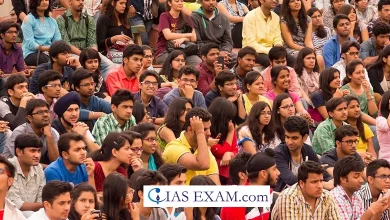UPSC Editorial Analysis
BRICS focus on breaking Western Hegemony
[GS Paper 2 – Global, Bilateral and Regional Groupings involving India]
Context – China is hosting the 14th BRICS summit in virtual mode. The focus of the summit will be centered on the conflict and the association’s future.
About BRICS
- BRICS is an acronym for the grouping of the world’s leading emerging economies, namely Brazil, Russia, India, China and South Africa. The BRICS Leaders’ Summit is convened annually.
- It does not exist in the form of an organization, but it is an annual summit between the supreme leaders of five nations. The grouping was formalized during the first meeting of BRIC Foreign Ministers on the margins of the UNGA in New York in September 2006.
- The first BRIC Summit took place in 2009 in the Russian Federation and focused on issues such as reform of the global financial architecture. South Africa was invited to join BRIC in December 2010, after which the group adopted the acronym BRICS.
- South Africa subsequently attended the Third BRICS Summit in Sanya, China, in March 2011. The Chairmanship of the forum is rotated annually among the members, in accordance with the acronym B-R-I-C-S.
Significance of BRICS
- Economically, militarily, technologically, socially and culturally, BRICS nations represent a powerful bloc.
- 40% of the world’s population: They have an estimated combined population of 3.23 billion people, which is over 40 per cent of the world’s population.
- 25% of global GDP: They account for over more than a quarter of the world’s land area over three continents, and for more than 25 per cent of the global GDP.
- Two fastest growing large economies: The grouping comprises two of the fastest-growing nations, India and China.
- It has proved its mettle to an extent by establishing the BRICS New Development Bank (NDB) and the Contingency Reserve Arrangement (CRA).
Challenges created by Ukraine Crisis for BRICS
- The leaders of BRICS countries — Brazil, Russia, India, China and South Africa — will navigate the crucial dilemma of evolving a common stance on the Russian-Ukraine conflict.
- The primary agenda of BRICS was rebalancing an international system dominated by the West. However, the Ukraine crisis could act as a distraction from that primary agenda.
- The geopolitical considerations of its members can come in the way of attaining the grouping’s original goal. Target of economic warfare: Some of the BRICS members could be potential targets of the kind of economic warfare deployed by the West against Russia.
- The West has so far not expected the BRICS countries to stringently adhere to its sanctions against Russia. But it will be naïve to expect that they will persist with this attitude.
Measures to be taken by BRICS
-
Create institutional arrangement:
- Challenging the economic might of the West in the near future might be close to impossible.
- Despite the group comprising China, India and Russia, intra-BRICS trade accounts for less than 20% of global trade.
- BRICS is far from having its own payment mechanisms, international messaging systems or cards.
- The Ukraine crisis should drive home the need to create institutional arrangements that can cushion against similar financial turbulence in the future.
-
Recalibrate structure and expand:
- BRICS requires a recalibration of its structure and agenda.
- Creating financial mechanisms and technological institutions could turn BRICS into a G20 for developing nations.
- It’s time to revisit the idea of expanding the grouping by inviting new members.
- This could also impart new vigour to the BRICS’s developmental goals.
-
Economic cooperation between India and China:
- Economic cooperation between India and China is vital for the success of any future BRICS endeavor. The border conflict has created a mistrust of China in India.
- In the current situation, New Delhi is unlikely to take an anti-West stance. India, unlike China, is neither a UN Security Council member nor does it have major sticking points with the West. At the same time, India is not a part of the Western camp.
- That does open up the possibility of New Delhi taking a more proactive position in BRICS.
- The two powers need to come together for the sake of global governance reform.
Conclusion
The Ukraine crisis could be an occasion for the leaders of BRICS nations to commit themselves to the original goal of the bloc. It’s an opportunity they shouldn’t let go of.





.png)



